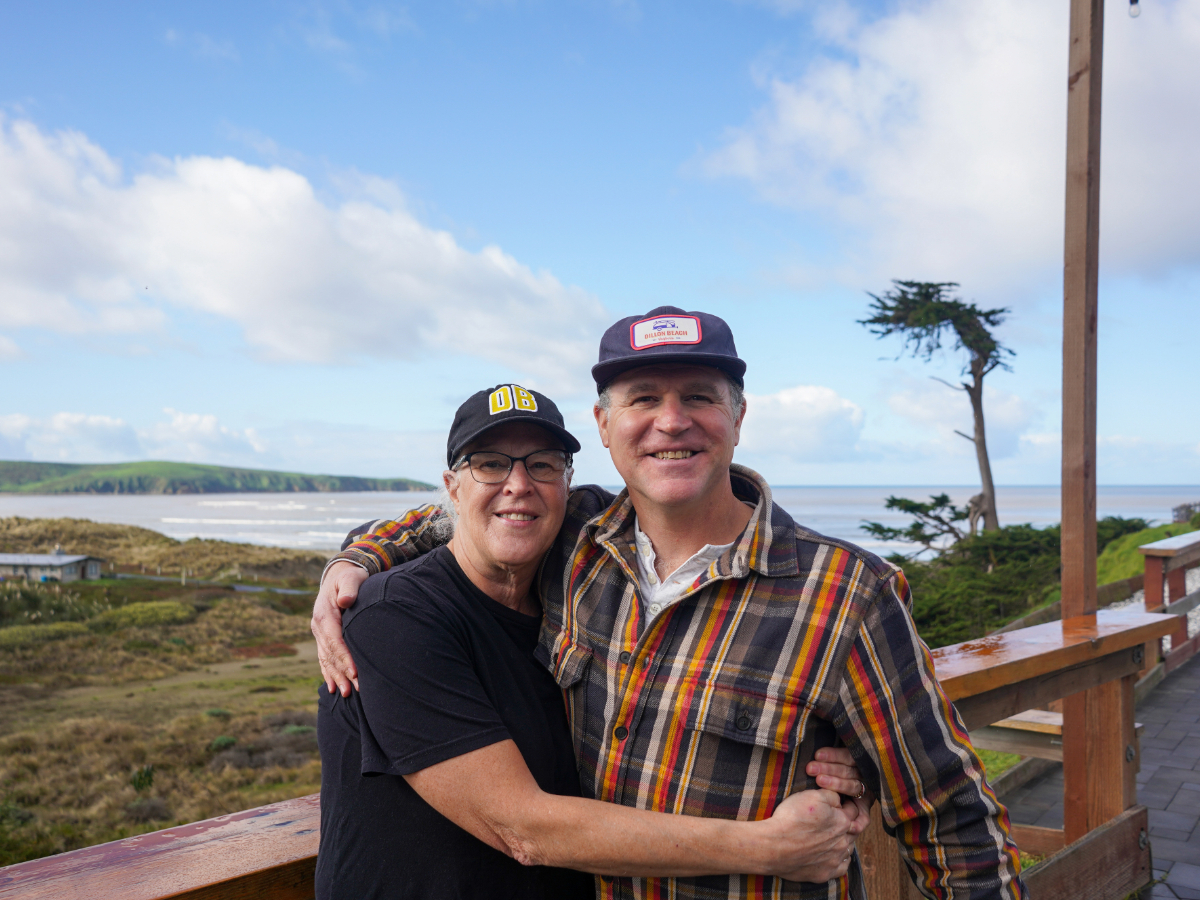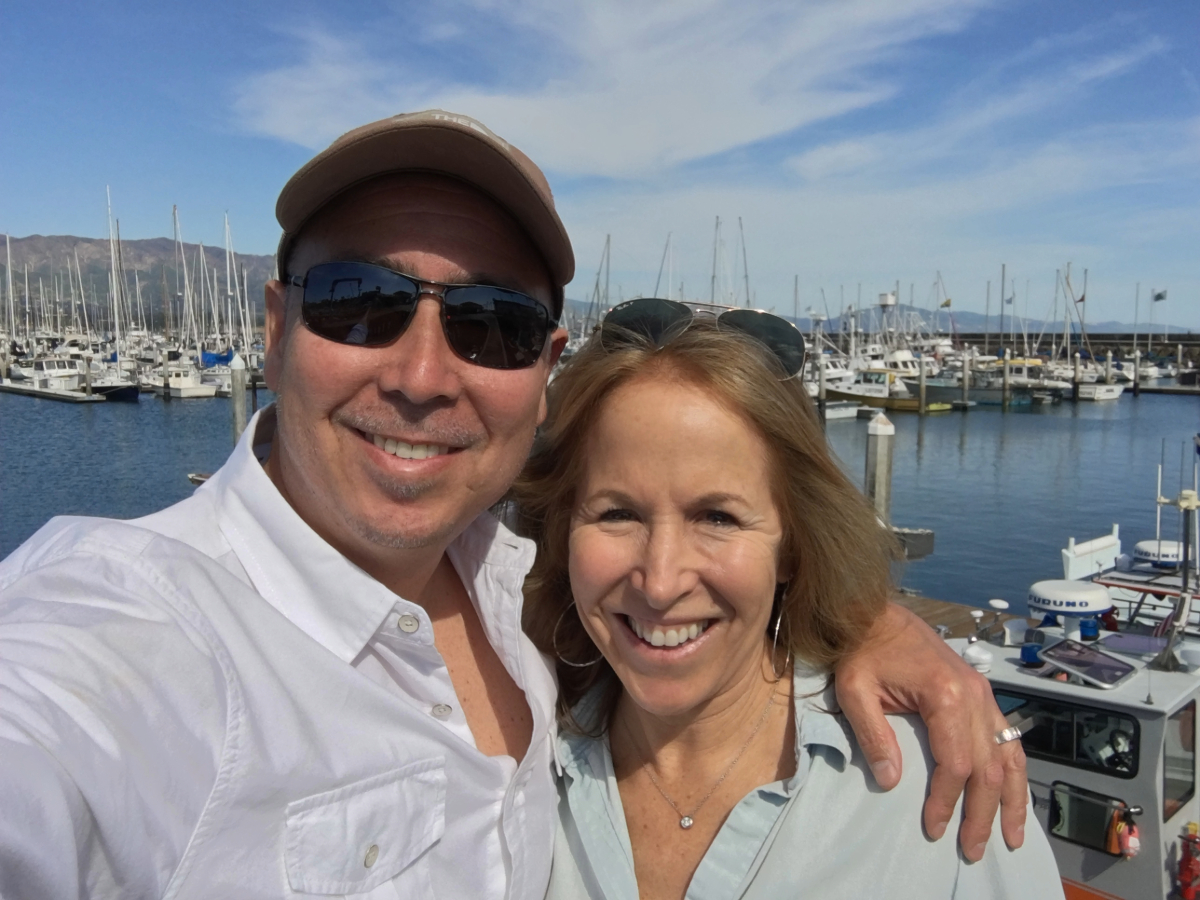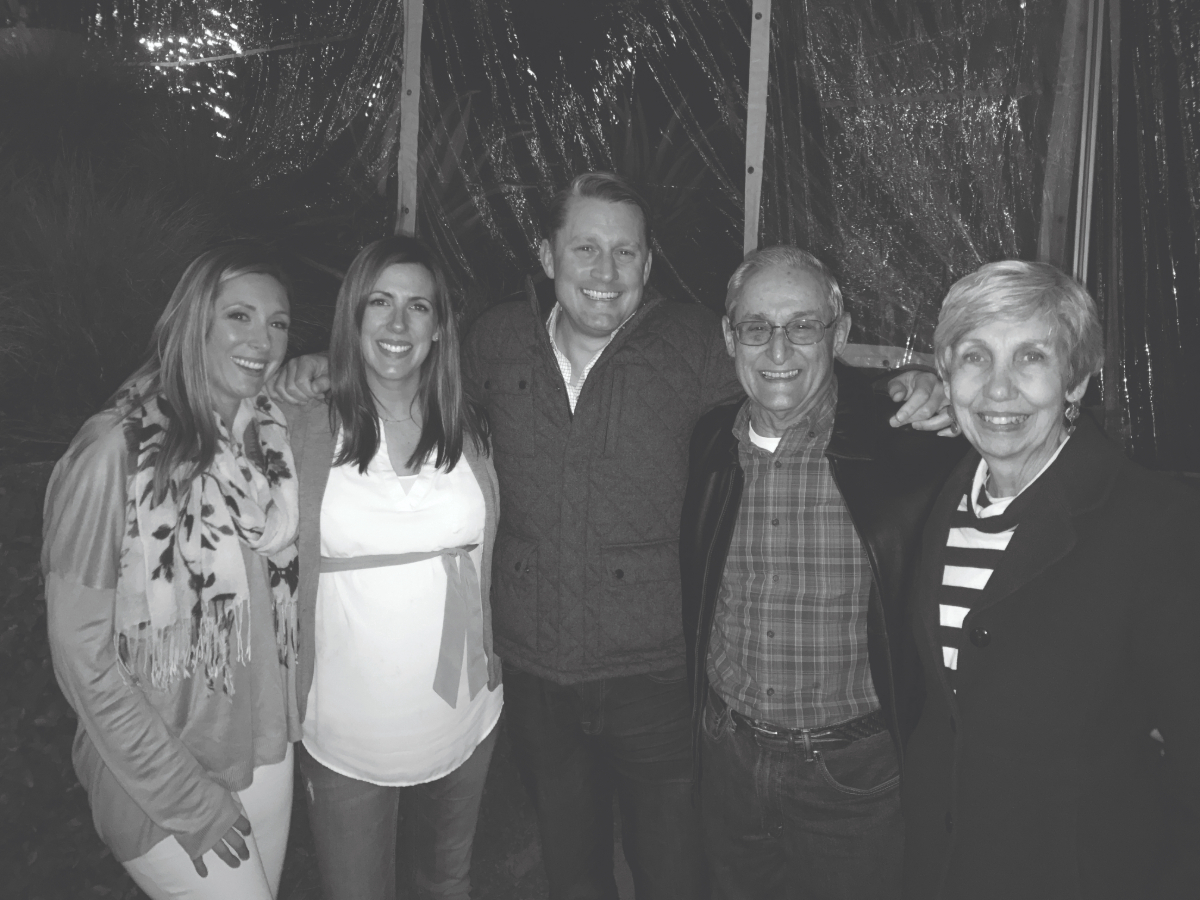For many families and individuals, adoption is the chance at a new narrative, a new future, a new path. In most cases biological parents put their children up for adoption when they know they are not able to care for them sufficiently, while adoptive parents seek to adopt children when they cannot or do not wish to have children of their own.
Many adoptions unfold through systems that protect the identities of people on both sides of the family equation. Sometimes, however, adopted children do whatever they can once they reach adulthood to track down their biological parents and other family members and establish grown-up relationships.
Here in Marin County, these reconnections happen all the time.
Back in 2019, we published an essay by San Anselmo resident Adrian Jones about how a near-death experience inspired him to track down his birth parents through the official state record of births and the help of a persistent friend.
For Jones, the push was medical — he wanted to know his health history so he could make more informed decisions. He acknowledged that for other people, the impetus can be something entirely different.
“Everyone should have a right to know their truth and who they are,” Jones said. “For some adopted people, knowing how they came to be and who they are biologically connected to can fill holes in their soul, give them peace, answer questions they have had or give them new questions to answer. Reunion can be critically important.”
Over the years, other adopted Marin residents have had different experiences reconnecting with some of their biological family members. Here are two different stories.
Cross-country connection

Visitors to the Dillon Beach Resort in Dillon Beach might notice that owner Mike Goebel and Director of Operations Vicki Hoefle look a lot alike. That’s because the 65-year-old Hoefle is the 47-year-old Goebel’s biological mom.
The two have worked together for the last seven years; before taking over the resort, Hoefle worked as a cook at Goebel’s brewery, Brewsters, in downtown Petaluma.
But they didn’t know each other until 2012.
Hoefle gave up Goebel for adoption immediately after he was born. She was 18. At the time, she knew she was too young, and she resolved to go on with her life. “I could barely raise myself at the time,” she said, looking back. “It was a hard decision, but it was the right decision for both of us at the time.”
Goebel grew up in Centralia, Washington, in a home with parents who took in scores of foster kids. He always knew he was adopted but never really got too curious about his biological mom. That all changed when he was 30, when he started wondering: Who is she?
Due to privacy laws (and state rules), Goebel had to work through a third-party mediator to find out. He hired the company, equipped them with limited information and waited.
After several years, the call came in. They’d found her. In Vermont.
Goebel didn’t know what to think. He was excited to know they had found his birth mother, but he wasn’t sure how to proceed.
At the recommendation of the agency, Goebel wrote Hoefle a letter and included some baby pictures. Hoefle took time to respond but eventually wrote back with pictures of her own. Later, the duo talked on the phone. Eventually they met at Hoefle’s condo in Phoenix and caught up in person. They hit it off.
Over the years that followed, Goebel and Hoefle made up for lost time, meeting for hikes, coffees, dinners and other events. Hoefle introduced Goebel to her family; he introduced her to his.
Finally, when Goebel was building Brewsters, he suggested that Hoefle move to California so they could work together. He bought her a house in Petaluma. The rest is history.
“In many ways I have the best of all worlds,” he said. “I have the adoptive parents who were super supportive, and then I got to find my biological mother when I was 30 and develop another amazing relationship with her. Now I get to see her every day of my life. Honestly, it’s like winning the lottery.”
Hoefle agreed.
“This has become one of the very special relationships in my life,” she said. “It’s hard to describe getting a second chance that also feels like a first chance, but it usually feels like I’ve won the lottery. I’m grateful for it every single day.”
Turning to technology to find lost siblings

Judi Ratto’s journey to track down members of her birth family followed a common trajectory: connections tracked by genealogy websites.
The 61-year-old former Corte Madera resident always knew she was adopted, and at some point managed to track down her birth mother through a liaison service like the one Goebel used. With the help of a mediator, she learned that her birth mother didn’t want to meet Ratto because she had never told her other children that she had a child before she was married and before they were born.
Ratto accepted that and was willing to move on with her life.
Then, one day in 2019, she received a message on the genealogy site Ancestry.com. It was from a man asking why the two of them seemed to have so many genes in common. Ratto knew right away: This must be her half-brother.
So, the two started talking, first electronically and then by phone. Eventually they met up in Santa Barbara and spent the weekend just getting to know each other.
“I was raised with a brother who also was adopted, so it was mind blowing to connect with another [biological] brother,” said Ratto, looking back. “Even though we had gone all these years without knowing each other, when we got together and started talking the connection just felt very strong.”
Ratto’s half-brother, who asked to be identified only by the name Jeff, agreed.
“I’ve always grown up feeling like, ‘I wish I had a sister I could talk to about certain things,’ he said. “Now I do.”
Since that trip, the two have grown very close. Jeff flew up from his home in Los Angeles to attend Ratto’s 60th birthday party. Ratto has flown down to L.A. to meet Jeff’s wife and kids. Ratto recently moved to Sonoma, and Jeff visited her there, as well.
But the relationship isn’t all rainbows and unicorns. The mother they share has not acknowledged Ratto’s existence and has said she does not wish to discuss it with Jeff and his brother. Jeff, who is now 57, said he often feels like he must keep his relationship with Ratto secret.
“I have an inner conflict between respecting my mother’s feelings and not being able to fully celebrate this the way I want to,” he said. “It has been a challenge keeping it from her.”
As for Ratto, her adoptive parents have both died, and she said it would be nice to reconnect with her birth mom. She added that she will always respect the wishes of her biological mother, even if it means never having a relationship with her.
“My relationship with Jeff is special,” she said. “If that’s all I get out of this, that’s a big win.”
Finding comfort in each other

Jones, the San Anselmo man who sought out his biological family members after his heart attack, certainly understands the value of reunion.
Jones is 55 now, and he reunited with his biological family members when he was 48. After they reconnected, one of his three sisters noted that she had always wanted a big brother, and that Jones had finally fulfilled that wish.
The experience was so powerful for Jones that he set out to capture it and share it with others. Through word of mouth on social media, Jones put together a group of other adopted individuals who had gone through the process of reunion with their respective birth families.
The group started meeting in 2017. They called themselves the Adoptee Supergroup.
For nearly 2.5 years, the group met monthly (or so) at Perry’s in Larkspur and chatted about their experiences. They laughed. They cried. They supported each other. Unconditionally.
“It just felt like being in the company of others who were going through something similar, wherever they were on the journey of reunion, would be helpful,” Jones remembered. “When you’re going through this, there is no playbook. There’s a power in sharing the journey.”
Unfortunately, the group disbanded during the Covid-19 pandemic and has not resumed its meetings. For Jones, however, the mission continues. He continues to write about his experiences and make himself available to other fellow adoptees who have questions about the process of reconnecting with their birth families.
As Jones sees it, reconnecting with his birth family and learning about his medical history quite literally saved his life.
One can only hope it has the same effect on others, too.
Matt Villano is a freelance writer and editor in Sonoma County. To learn more about him, visit whalehead.com.

